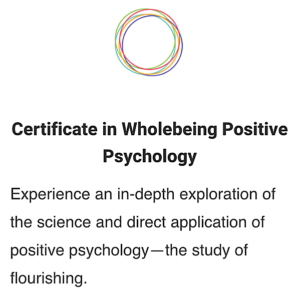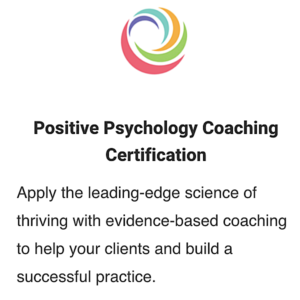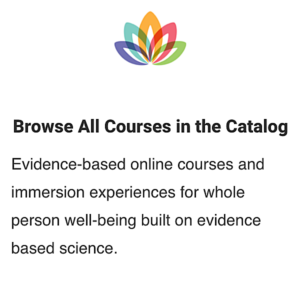by Heidi J. Martinez
I had recently begun feeding my curiosity for positive psychology when I learned about the first Embodied Positive Psychology Summit last year. Through a generous professional training grant, a colleague and I were sent to Kripalu to learn about positive psychology and self-care so we could bring the information back to our nonprofit organization.
The experience was life changing. Every morning offered the opportunity to start our day with a gentle yoga practice, which set the tone for the rest of the day in such a peaceful and loving way. Each meal was an experience unto itself. During the week, I ate an all-vegetarian diet. I savored every bite never, during the whole week, felt hungry or uncomfortably full. During breakfast, we ate mindfully in silence, which was surprisingly comfortable, and during lunch and dinner we engaged with new friends and other Kripalu guests. I experienced first-hand how the way we move and treat our bodies speaks to the “embodied” aspect of positive psychology. Since leaving Kripalu, I have sustained a vegetarian diet (aided by two cookbooks bought at the Kripalu Shop) and have been practicing yoga regularly.
The series of speakers at the summit opened my eyes to the necessity for a positive lens in psychology. I began with a pre-summit workshop on character strengths with Ryan M. Niemiec of the VIA Institute. I had previously taken the survey to assess my strengths, and Ryan’s class allowed the space for exploration of those strengths, how they were developed, how they may be nurtured, and how to spot them and develop their growth in our children, loved ones, and colleagues. I met men and women there who I now call my friends and hope to meet up with again at the next summit in May.
Barbara Fredrickson gave an inspirational talk about her “broaden and build” theory of positive emotions and expanded on our concept of love, which she calls positivity resonance. As one of the theorists at the forefront of the discipline, she is an inspirational model to budding positive psychologists like myself. I bought two of her books, was delighted to meet her and have them signed, and am currently reading her seminal articles as a master’s student in positive psychology at Claremont Graduate University.
James O. Pawelski and Suzann Pileggi Pawelski spoke of the effectiveness of apology and compliments. Interpersonal interactions are, as I’ve come to see it, the breeding place or the field, if you will, for emotional growth and discovery. What stayed with me even more, however, was James’ analogy of the red cape vs. the green cape. We wear the red cape when we swoop in to save people from bad things that are happening. The green cape is the one we wear when we are lifting people up and supporting them in flourishing and living their values. His talk helped me to appreciate the necessity and complementary nature of both.
Sharon Salzberg broadened our hearts with lovingkindness meditations and Megha Nancy Buttenheim awoke the child in me again with her Let Your Yoga Dance classes. And there were so many other inspiring moments. It was an experience I plan to renew each year at the annual event but, perhaps more importantly, each day through my own mindful practices.
Heidi J. Martinez is a master’s candidate in the field of Positive Developmental Psychology and Evaluation at Claremont Graduate University, and plans to pursue a doctorate in positive psychology upon completion. Her background is in human services: assisting adults with developmental disabilities, adolescents with mental illness, and youth transitioning into adulthood. A former teenage mother and first-generation college student (and today a mother of two), she aspired to assist others to overcome their circumstances. A presentation by Jonathan Haidt inspired her to pursue the study of positive psychology, and her current research interests include mindfulness and pro-social emotions, particularly in the context of close relationships.






